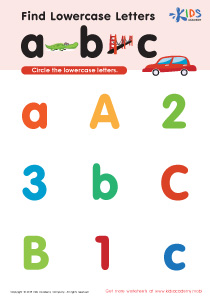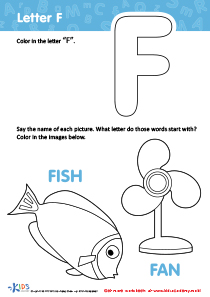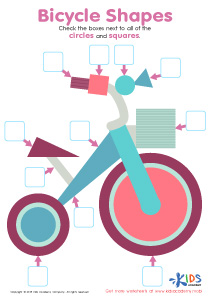Normal Math Quizzes for Ages 4-5
9 results
9 filtered results
Clear all filters9 filtered results
-
From - To
Dive into the world of numbers with our Normal Math for Ages 4-5 interactive assessment quizzes! Tailored specifically for young learners, these quizzes are designed to check knowledge and understanding in a fun and engaging way. From basic counting to simple addition and subtraction, our quizzes cover essential math concepts suitable for children aged 4 to 5. With instant feedback provided, children can learn at their own pace, reinforcing their math skills while enjoying the interactive experience. Perfect for early learners, our Normal Math quizzes are the ideal tool to spark a love for math in your little ones. Start their math journey today!
In the ever-evolving landscape of educational technology, Normal Math for Ages 4-5 has emerged as a beacon for parents and educators alike, seeking innovative ways to engage young learners in the foundational concepts of mathematics. Normal interactive quizzes, specifically tailored for children aged 4 to 5, stand out as an exceptional tool, blending fun with learning to create an enriching experience that benefits children in their early developmental stages.
Mathematics, often perceived as challenging, becomes an adventure for young minds through these interactive quizzes. Designed with the cognitive and emotional development of 4 to 5-year-olds in mind, Normal Math for Ages 4-5 simplifies complex concepts into bite-sized, manageable lessons that captivate children's interests and encourage a love for learning. This age-specific approach ensures that children are not overwhelmed but are instead introduced to mathematical concepts in a manner that is both accessible and enjoyable.
The brilliance of Normal interactive quizzes lies in their ability to adapt to the individual learning pace of each child. Unlike traditional classroom settings, where the pace of learning is uniform, these quizzes offer personalized experiences, allowing children to progress at their own speed. This personalization is crucial at such a formative age, where the development of confidence in their abilities can significantly influence children's attitudes toward learning in the future.
Moreover, Normal Math for Ages 4-5 incorporates a variety of interactive elements such as colorful animations, engaging sounds, and rewarding feedback mechanisms. These features not only make the learning process more enjoyable but also aid in the retention of mathematical concepts by associating them with positive and stimulating experiences. As children navigate through different levels and challenges, they develop critical thinking and problem-solving skills, foundational competencies that extend beyond mathematics.
The assessment aspect of these quizzes provides another layer of value, offering insights into the child's understanding and mastery of the concepts covered. This feedback is invaluable for parents and educators as it allows for the identification of areas where the child may need further support or challenge. By addressing these needs early on, Normal interactive quizzes contribute to a solid mathematical foundation, easing the transition to more advanced topics as the child progresses in their educational journey.
Furthermore, by embedding the learning process in an interactive and digital format, Normal Math for Ages 4-5 prepares children for the technological world they are growing up in. It fosters not only mathematical skills but also digital literacy, a critical skill set in today's digital age. Children learn to navigate digital interfaces, follow instructions, and interact with digital content, all of which are essential skills in the 21st century.
In conclusion, Normal Math for Ages 4-5 stands out as a pioneering educational tool that enriches the learning experiences of young children. Through personalized, interactive quizzes, it lays the groundwork for a lifelong love for learning and a solid mathematical foundation. By leveraging technology to make learning fun and engaging, it ensures that children are well-equipped, not just in their mathematical journey, but in their overall educational development, setting them on a path to success from the very beginning.











